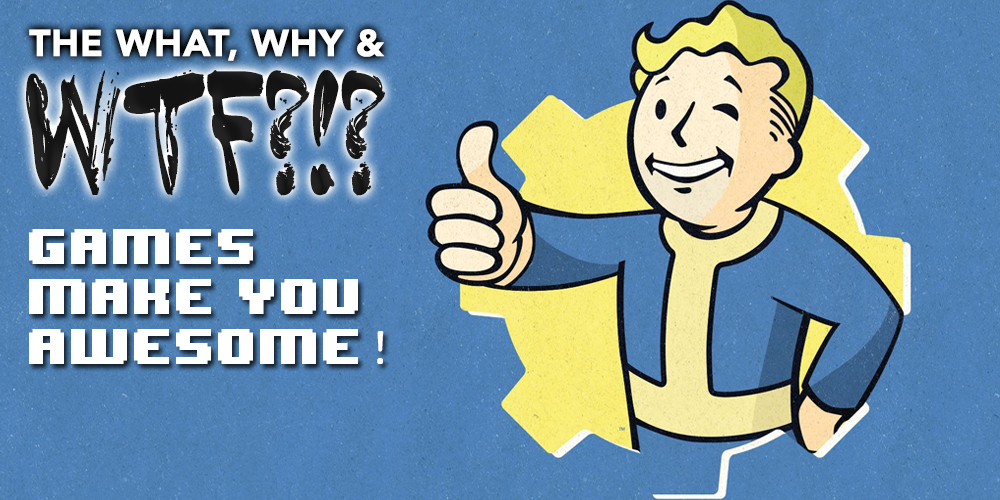
It’s easy to be cynical about the state of games these days. We get buggy rehashes of franchises every 6 months with ludicrous DRM and micro-transactions in full priced games, not to mention the expansion packs that cost as much as the original game. Let’s not get buried in that 20-storey pile of negativity though, because we’re talking about games here, and games are one of the most awesome things ever conceived! Instead of my usual ranting about how games are tainted by people that want to make a buck, I’m going to tell you why playing games makes you a baller.
The key word here is ‘playing’. As far as that fringe group called Science is concerned, play is a well-documented and well-studied aspect of the human condition that promotes learning and experimentation. Games are just a structured form of play, and while they might not outwardly look like they teach social skills or motivational habits, they typically do, and that’s what is great about them. Games can cultivate particular modalities of thought or approaches to problem-solving that leave an impression on the player, but they do it in a way that is fun (or engaging, at least) and inviting. If you’ve played a video game, chances are it’s made you smarter in ways you didn’t even realise, and it’s about time I started talking about the positives of games for a change!
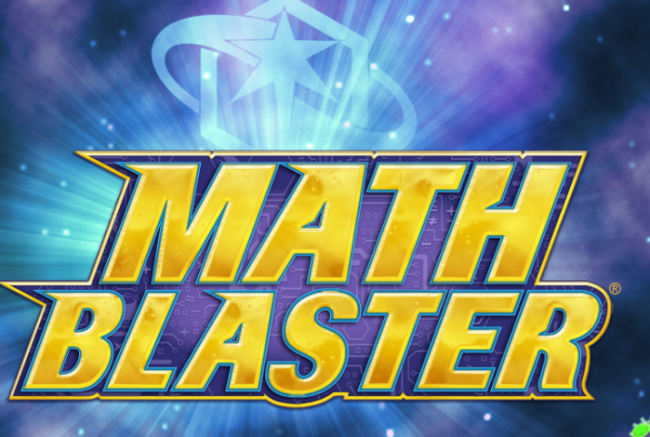
Don’t worry, it doesn’t involve this
Games are a structured form of play, but that structure varies from game to game. Some games don’t have clearly defined victory conditions, others don’t even have victory conditions, but all games require interaction. Unlike films which continue with or without the viewer, games require input from the player, so effort is required from players to progress in a game. In a video game, that effort could be as little as holding down a single button, or it could involve mastering a complex system, like Civ, but games don’t move along without an input. Depending on the game, that input will involve – if not downright require – a particular skill.
In order to progress in a game, you need to be skilled enough to overcome a presented challenge. If Mario is presented with a wall, you need to know which buttons to press to make him jump over it. The skill of jumping soon gets tested on how well you can time one, how controlled it is and how carefully you can do it to navigate between platforms. This is all well and good, but how does jumping make us smarter? Well, imagine that testing applied to another skill, say, budgeting in an RPG or planning in a city-building game. Learning those skills can be very cool in of themselves, but people that play games become familiar with something far more valuable: systems.
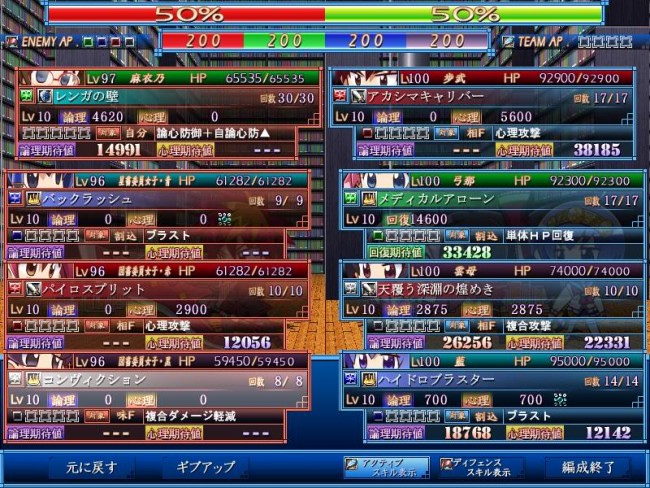
With systems like these, how could you not get smarter!?
Games are, at their core, systems of rules. Becoming familiar with that system and mastering the skills required to leverage the system is the key to getting good at the game. In much the same way that a game’s rule set creates a system, engineers and mathematicians use systems to represent situations that are too complex to approach head on. Likewise, artists use systems regarding lighting and colour palettes to help in honing their craft, and don’t even get me started on the western musical system, because I will go on for days about the wonders of lydian superimposed over a phrygian progression. It’s easy to see the parallels between understanding the system of a game and applying that approach to something outside a game, but why should headshots in Counter-Strike make me better at maths?
Understanding how a system works is more than just saying X works. You need to take a step back and look at the system outside of the system itself, understand how each component feeds into each other and then pump that knowledge back into the system. This meta approach isn’t uncommon for games, especially ones where feedback loops are involved. Taking a step back in Hearthstone and seeing what abilities feed into others is integral to constructing a solid deck, and that requires a higher level of thinking than putting down the tankiest card each turn. Thing is, once you start thinking outside the system, that abstract approach becomes second nature.

… Get it? META Knight? Heh. Okay, moving on
Every game that’s ever been made isn’t 100% unique, and a lot have shared qualities about them that we can categorise into genres. So, when we get good at one game, we can (in theory) be quite good at another if the systems are similar and the demanded skills are transferable. Being able to see these similarities requires some abstract thinking, because while Command and Conquer and Starcraft are very similar, they are by are by no means the same. Abstraction is fundamental to disciplines like engineering and physics, and one of the reasons we use equations instead of words is to ensure we can transfer abstract ides them between disciplines unambiguously. So, when we distil mechanics from games into unambiguous, abstract concepts (scouting, tanking, etc), we’re actually doing some very high-level thinking. However, highest of all is the process of creating and validating, and games are extremely good at testing both.
It’s one thing to analyse, dissect and apply something you’ve learned to a situation, but it’s another to predict and evaluate what you’re going to do. According to Bloom’s Taxonomy, appraisal and prediction are peak cognitive functions, and demonstrating these skills is no easy feat. Games like Deus Ex are the epitome of this, giving the player a huge amount of freedom but leaving them to decide what the best course of action will be. Is hacking the turrets a better option than going through the back door, or is it smarter to trick the guards into letting me walk right in? Games cultivate these high-level functions, and best of all, they apply them in all sorts of different situations.

ALL sorts
As games have become more nuanced, developers have started taking on all sorts of subject material. Games like Mass Effect, The Witcher, Persona and visual novels galore are tackling the complex world of social interactions through games. While they don’t offer the freedom of, you know, life, games with a strong social component use systems to test players on some aspect of social experiences. It’s not like these games can ever test you in a real social situation, but the systems they use are surprisingly helpful outside the game world.
Because of the limitations of video games, conversations are guided by what the game lets you say. Every non-linear conversation you have with a NPC will involve you deciding what to say next. Because the game can’t offer unlimited choice, you have a maximum of X options, which is nothing like a real conversation, but this simplification has its merits. The complexity of real conversation can be intimidating, so boiling down your thought processes into a few general (ie., abstract) ways of responding can help you clearly approach a conversation. If you can approach a conversation from a more meta, simplified perspective, then weaving through the subtleties of conversation becomes far easier, but games can help with that too.
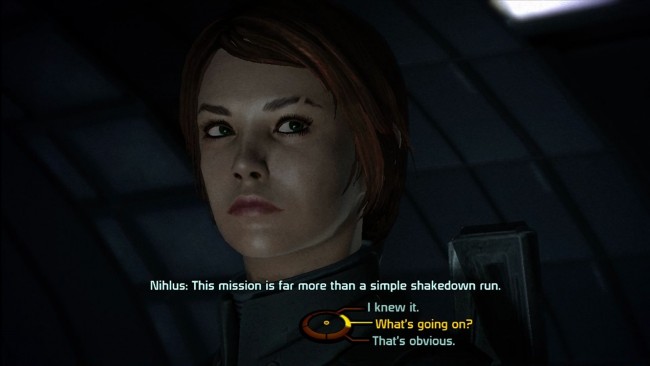
Mass Effect did it well. Fallout 4… Less so…
Picking up on subtle cues in conversation is an important skill to have, and there are plenty of games that cultivate it via gameplay. The best example I know of is Deus Ex: Human Revolution, which placed a heavy emphasis on subtlety in conversation. If you didn’t notice a shift in tone or subtle facial motions, it could lead to a negative social interaction, and that was rarely what you wanted. These skills can help in everyday conversation too, and can ultimately help you in reading whether you are creeping people out.
Perhaps the biggest social lesson video games teach is how not to be a giant prick. The great thing about games is that they show you the consequences of your actions, so if you break a NPC’s heart, they’ll probably act more distant towards you. If you start insulting people, they won’t laugh quite as hard at your brilliant jokes, much like real people. A lot of visual novels are great at demonstrating what happens when you start acting like a dick because they can be so non-linear, and that will bleed into your everyday social interactions. There’s certainly games where being a dick is hilarious (Skyrim, for example), but dealing with the consequences isn’t the most pleasant experience either.
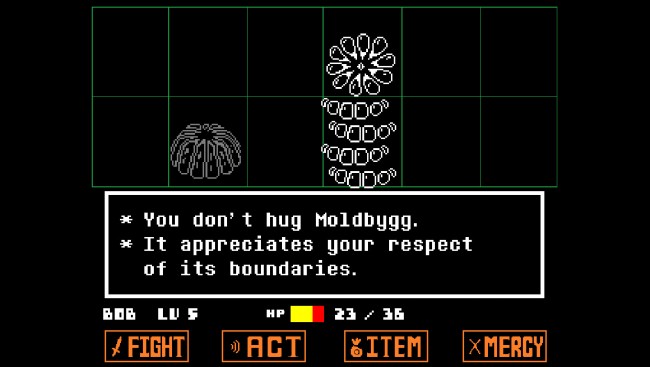
Then there’s Undertale, which fills you with determination regardless of what you do
It’s not like games are that one quick fix to become smarter or more suave, but there’s plenty of games that cultivate the skills without you even knowing. Regardless of the games you play, there’s something to be learned in the experience, and more often than not, they’re crazy useful outside of games. Whether it’s engaging in abstract thinking or just being able to convince someone in a game that you’re not going to kill them, games are a great way to become more awesome in whatever you’re doing. Assuming you’re willing to pay that much for the DLC.











